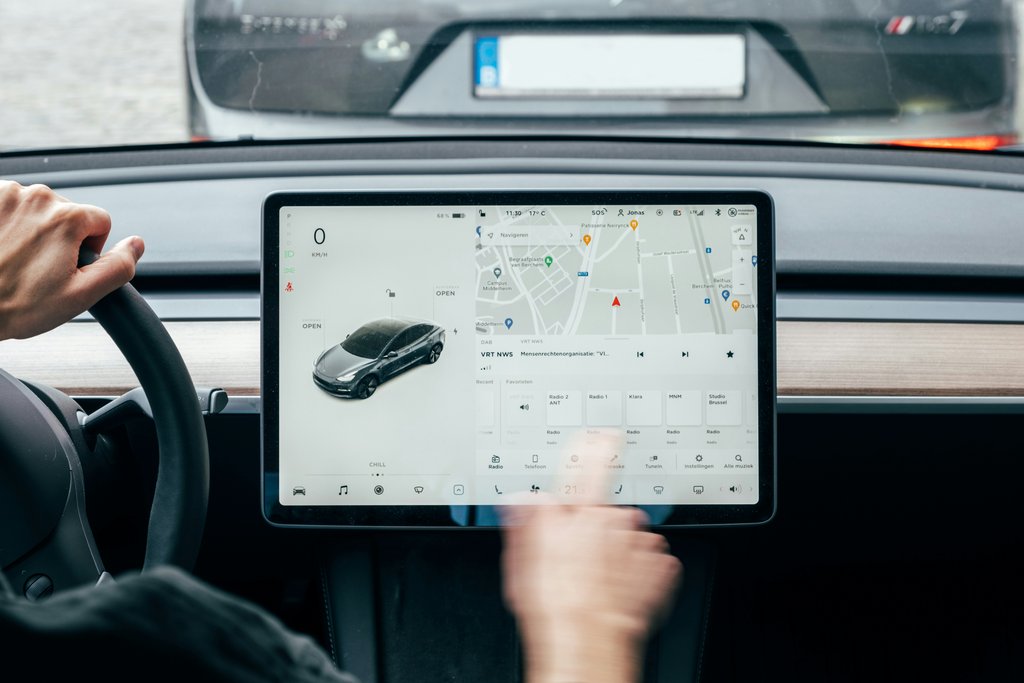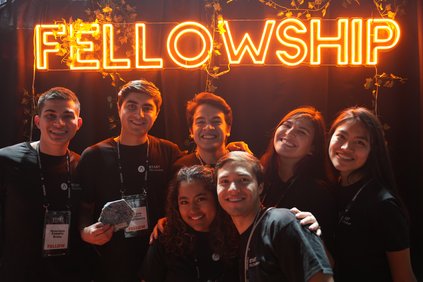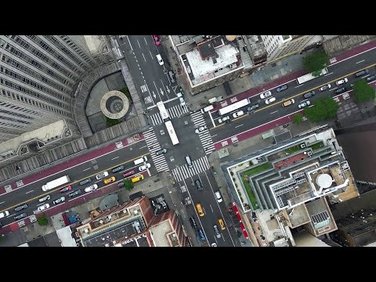Research - 17.04.2024 - 14:00
Driving sustainability with 500 HP: How Tesla redefined electric mobility
How sustainable is a Tesla car? That largely depends on how the electricity used to charge it is produced. However, some design features aren’t sustainable at all. And yet Tesla managed to reshape public perception of electric vehicles completely. How did they do it? A recent study reveals the factors behind Tesla's disruptive success. Apart from technology and design, storytelling played a key role.

The first fully electric vehicles have been developed as early as the 1880s. But prior to the market entry of Tesla, fully electric cars, or so-called Battery Electric Vehicle (BEV) have never been more than a niche product. The models before around 2010 were mostly characterized by poor design as well as limited range and velocity. Tesla’s Model S changed this completely. A group of researchers from the University of St.Gallen (HSG), ETH Zurich and Stanford University have examined the factors behind Tesla’s success. In addition to an extensive literature review they conducted 54 interviews with experts from 32 organisations. The study was recently published in the Journal of Product Innovation Management (Open Access).
Three main success factors
Based on their research, Maximilian Palmié and his co-authors have identified three main success factors that made Tesla’s initial models so appealing to consumers. First of all, Tesla incorporated discontinuous technological solutions instead of building on traditional technology. While most carmakers were favouring hybrid solutions, Tesla went fully electric. They also introduced new features including a large touch screen, an autopilot and wireless software updates that had little to do with sustainability as such but indicated a strong focus on future development. Secondly, they optimised their products along traditional evaluation criteria (e.g. driving performance, comfort, space). During one of the interviews, the director of an industry association summarized it like this: ‘Everyone who buys an electric vehicle tells me first of all that it's great fun to drive around with the thing. A car purchase is rarely driven by reason.‘ The third factor of Tesla’s success is the fact that they created an ecosystem of complementary products like superchargers, which helped foster the acceptance of their product and the adoption of BEVs in general. Tesla also co-marketed solar energy, demonstrating the company’s commitment to a sustainable future.
Brilliant storytelling
If sustainability were the main concern of Elon Musk and his executives, Tesla cars would certainly look quite different. They might not come with 500 horsepower or more. In fact, many design choices prioritise an appealing user experience at the expense of a minimal environmental footprint. To counter possible accusations of greenwashing, Tesla emphasised the futuristic aspects of its technology and the long-term vision of sustainable mobility in general. Redirecting public attention towards the future, Tesla was able to downplay the significance of current shortcomings. Even when problems arose, as was the case with the braking system of Model 3, Tesla managed to leverage its narrative. While other manufacturers would have been forced to start a complex recall campaign, Tesla was able to fix the problem with a wireless update that customers were able to perform themselves without consulting a service centre. In this way, Tesla turned a potential reputational crisis into a demonstration of its agility and customer-centricity. Finally, a strong community engagement with various touchpoints helped amplify the positive perception among customers and created a buffer against criticism.
What can we learn from Tesla?
‘It’s difficult to judge Tesla's approach ethically’, says lead author Maximilian Palmié. ‘Tesla's vehicles were much more environmentally compromised than previous electric cars. They may not even be more environmentally friendly than today's combustion engines. Should Tesla therefore be accused of greenwashing? Not necessarily. Hardly anyone disputes that electric vehicles are a crucial building block for a more sustainable mobility, and Tesla's methods have created a new demand for them.‘ In essence, Tesla's journey serves as a compelling case study. It shows how innovative product design, embedded in a complementary ecosystem and coupled with strategic reputation management, can overcome market scepticism and drive the widespread adoption of new technologies. However, it remains unclear whether other companies can adopt this strategy equally successfully without an extroverted CEO like Elon Musk who reaches an audience of millions, including many who perceive him as a great visionary or even a genius. Finally, it remains to be seen how the challenges Tesla is facing today will affect not only the company itself but the e-mobility as a whole.
Image: Unsplash / Jonas Leupe
More articles from the same category
This could also be of interest to you
Discover our special topics















